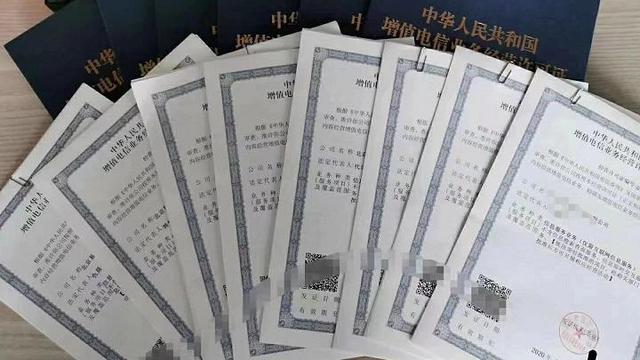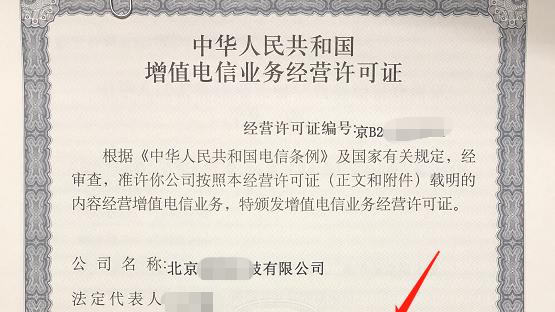HTTPS工作原理
文章来源:猫尾博客
https://cattail.me/tech/2015/11/30/how-https-works.html
目标读者:理解HTTP协议,对称和非对称加密,想要了解HTTPS协议的工作原理
读完本文,你能明白
- 什么是HTTPS,TLS(SSL),TLS和HTTPS是什么关系
- 什么是证书和数字签名,它们是如何传递信任的
- HTTPS有什么样的功能,它是如何实现这样的功能的
简介
HTTPS,也称作HTTP over TLS。TLS的前身是SSL,TLS 1.0通常被标示为SSL 3.1,TLS 1.1为SSL 3.2,TLS 1.2为SSL 3.3。本文着重描述TLS协议的1.2版本
下图描述了在TCP/IP协议栈中TLS(各子协议)和HTTP的关系

Credit: Kaushal Kumar Panday From: SSL Handshake and HTTPS Bindings on IIS
其中Handshake protocol,Change Ciper Spec protocol和Alert protocol组成了SSL Handshaking Protocols。
HTTPS和HTTP协议相比提供了
- 数据完整性:内容传输经过完整性校验
- 数据隐私性:内容经过对称加密,每个连接生成一个唯一的加密密钥
- 身份认证:第三方无法伪造服务端(客户端)身份
其中,数据完整性和隐私性由TLS Record Protocol保证,身份认证由TLS Handshaking Protocols实现。
总览
使用RSA算法的SSL握手过程是这样的

Source: Keyless SSL: The Nitty Gritty Technical Details
- [明文] 客户端发送随机数client_random和支持的加密方式列表
- [明文] 服务器返回随机数server_random ,选择的加密方式和服务器证书链
- [RSA] 客户端验证服务器证书,使用证书中的公钥加密premaster secret 发送给服务端
- 服务端使用私钥解密premaster secret
- 两端分别通过client_random,server_random 和premaster secret 生成master secret,用于对称加密后续通信内容
证书(Digital certificate)
那么什么是证书呢?

证书中包含什么信息
- 证书信息:过期时间和序列号
- 所有者信息:姓名等
- 所有者公钥
为什么服务端要发送证书给客户端
互联网有太多的服务需要使用证书来验证身份,以至于客户端(操作系统或浏览器等)无法内置所有证书,需要通过服务端将证书发送给客户端。
客户端为什么要验证接收到的证书
中间人攻击
客户端<------------攻击者<------------服务端
伪造证书 拦截请求
客户端如何验证接收到的证书
为了回答这个问题,需要引入数字签名(Digital Signature)。
+---------------------+
| A digital signature |
|(not to be confused |
|with a digital |
|certificate) | +---------+ +--------+
| is a mathematical |----哈希--->| 消息摘要 |---私钥加密--->| 数字签名 |
|technique used | +---------+ +--------+
|to validate the |
|authenticity and |
|integrity of a |
|message, software |
|or digital document. |
+---------------------+
将一段文本通过哈希(hash)和私钥加密处理后生成数字签名。
假设消息传递在Bob,Susan和Pat三人之间发生。Susan将消息连同数字签名一起发送给Bob,Bob接收到消息后,可以这样验证接收到的消息就是Susan发送的
+---------------------+
| A digital signature |
|(not to be confused |
|with a digital |
|certificate) | +---------+
| is a mathematical |----哈希--->| 消息摘要 |
|technique used | +---------+
|to validate the | |
|authenticity and | |
|integrity of a | |
|message, software | 对
|or digital document. | 比
+---------------------+ |
|
|
+--------+ +---------+
| 数字签名 |---公钥解密--->| 消息摘要 |
+--------+ +---------+
当然,这个前提是Bob知道Susan的公钥。更重要的是,和消息本身一样,公钥不能在不安全的网络中直接发送给Bob。
此时就引入了证书颁发机构(Certificate Authority,简称CA),CA数量并不多,Bob客户端内置了所有受信任CA的证书。CA对Susan的公钥(和其他信息)数字签名后生成证书。
Susan将证书发送给Bob后,Bob通过CA证书的公钥验证证书签名。
Bob信任CA,CA信任Susan 使得 Bob信任Susan,信任链(Chain Of Trust)就是这样形成的。
事实上,Bob客户端内置的是CA的根证书(Root Certificate),HTTPS协议中服务器会发送证书链(Certificate Chain)给客户端。
TLS协议
TLS协议包括TLS Record Protocol和TLS Handshake Protocol。总览中的流程图仅涉及到TLS Handshake Protocol。
TLS Record Protocol
在TLS协议中,有四种子协议运行于Record protocol之上
- Handshake protocol
- Alert protocol
- Change cipher spec protocol
- Application data protocol
Record protocol起到了这样的作用
- 在发送端:将数据(Record)分段,压缩,增加mac(Message Authentication Code)和加密
- 在接收端:将数据(Record)解密,验证MAC,解压并重组
值得一提的是,Record protocol提供了数据完整性和隐私性保证,但Record类型(type)和长度(length)是公开传输的
Record Protocol有三个连接状态(Connection State),连接状态定义了压缩,加密和MAC算法。所有的Record都是被当前状态(Current State)确定的算法处理的。
TLS Handshake Protocol和Change Ciper Spec Protocol会导致Record Protocol状态切换。
empty state -------------------> pending state ------------------> current state
Handshake Protocol Change Cipher Spec
初始当前状态(Current State)没有指定加密,压缩和MAC算法,因而在完成TLS Handshaking Protocols一系列动作之前,客户端和服务端的数据都是明文传输的;当TLS完成握手过程后,客户端和服务端确定了加密,压缩和MAC算法及其参数,数据(Record)会通过指定算法处理。
其中,Record首先被加密,然后添加MAC(message authentication code)以保证数据完整性。
TLS Handshaking Protocols
Handshakeing protocols包括Alert Protocol,Change Ciper Spec Protocol和Handshake protocol。本文不会详细介绍Alert Protocol和Change Ciper Spec Protocol。
使用RSA算法的握手过程是这样的(已在总览中提到)

Source: Keyless SSL: The Nitty Gritty Technical Details
客户端和服务端在握手hello消息中明文交换了client_random和server_random ,使用RSA公钥加密传输premaster secret ,最后通过算法,客户端和服务端分别计算master secret。其中,不直接使用premaster secret 的原因是:保证secret的随机性不受任意一方的影响。
除了使用RSA算法在公共信道交换密钥,还可以通过Diffie–Hellman算法。Diffie–Hellman算法的原理是这样的

By Original schema: A.J. Han Vinck, University of Duisburg-Essen SVG version: Flugaal [Public domain], via Wikimedia Commons
使用Diffie–Hellman算法交换premaster secret 的流程

Source: Keyless SSL: The Nitty Gritty Technical Details
小结
TLS Handshaking Protocols协商了TLS Record Protocol使用的算法和所需参数,并验证了服务端身份;TLS Record Protocol在协商后保证应用层数据的完整性和隐私性。
TLS Handshaking Protocol的核心是在公开信道上传递premaster secret。
Q&A
为什么传输内容不直接使用非对称加密?
性能
HTTPS能保证正常连接?
no
There are a number of ways in which a man-in-the-middle attacker can attempt to make two entities drop down to the least secure method they support.
攻击者甚至可以直接丢弃双方的数据包
服务端如何验证客户端身份?
通过Client Certificate
This message conveys the client’s certificate chain to the server; the server will use it when verifying the CertificateVerify message (when the client authentication is based on signing) or calculating the premaster secret (for non-ephemeral Diffie- Hellman). The certificate MUST be appropriate for the negotiated cipher suite’s key exchange algorithm, and any negotiated extensions.
Alert protocol有什么作用?
Closure Alerts:防止Truncation Attack
In a truncation attack, an attacker inserts into a message a TCP code indicating the message has finished, thus preventing the recipient picking up the rest of the message. To prevent this, SSL from version v3 onward has a closing handshake, so the recipient knows the message has not ended until this has been performed.
Error Alerts:错误处理
master secret是如何计算的
master_secret = PRF(pre_master_secret, "master secret",
ClientHello.random + ServerHello.random)
[0..47];
加密,压缩和MAC算法参数是如何计算的
Handshaking Protocols使得客户端和服务端交换了三个参数:client_random,server_random 和master_secret,通过以下算法生成算法所需要的参数
To generate the key material, compute
key_block = PRF(SecurityParameters.master_secret,
"key expansion",
SecurityParameters.`server_random ` +
SecurityParameters.`client_random`);
until enough output has been generated. Then, the key_block is
partitioned as follows:
client_write_MAC_key[SecurityParameters.mac_key_length]
server_write_MAC_key[SecurityParameters.mac_key_length]
client_write_key[SecurityParameters.enc_key_length]
server_write_key[SecurityParameters.enc_key_length]
client_write_IV[SecurityParameters.fixed_iv_length]
server_write_IV[SecurityParameters.fixed_iv_length]
The master secret is expanded into a sequence of secure bytes, which is then split to a client write MAC key, a server write MAC key, a client write encryption key, and a server write encryption key
使用Diffie-Hellman算法的TLS握手细节

Source: https://cipherstuff.wordPress/ target=_blank class=infotextkey>WordPress.com/
拓展阅读
- Keyless
- Let’s Encrypt
- Session resume
- 证书Revoke
参考链接
- TLS1.2规范:The Transport Layer Security (TLS) Protocol Version 1.2
- PKI规范:Internet X.509 Public Key Infrastructure Certificate and Certificate Revocation List (CRL) Profile
- 证书和数字签名:What is a Digital Signature?
- TLS Handshake:Keyless SSL: The Nitty Gritty Technical Details
























